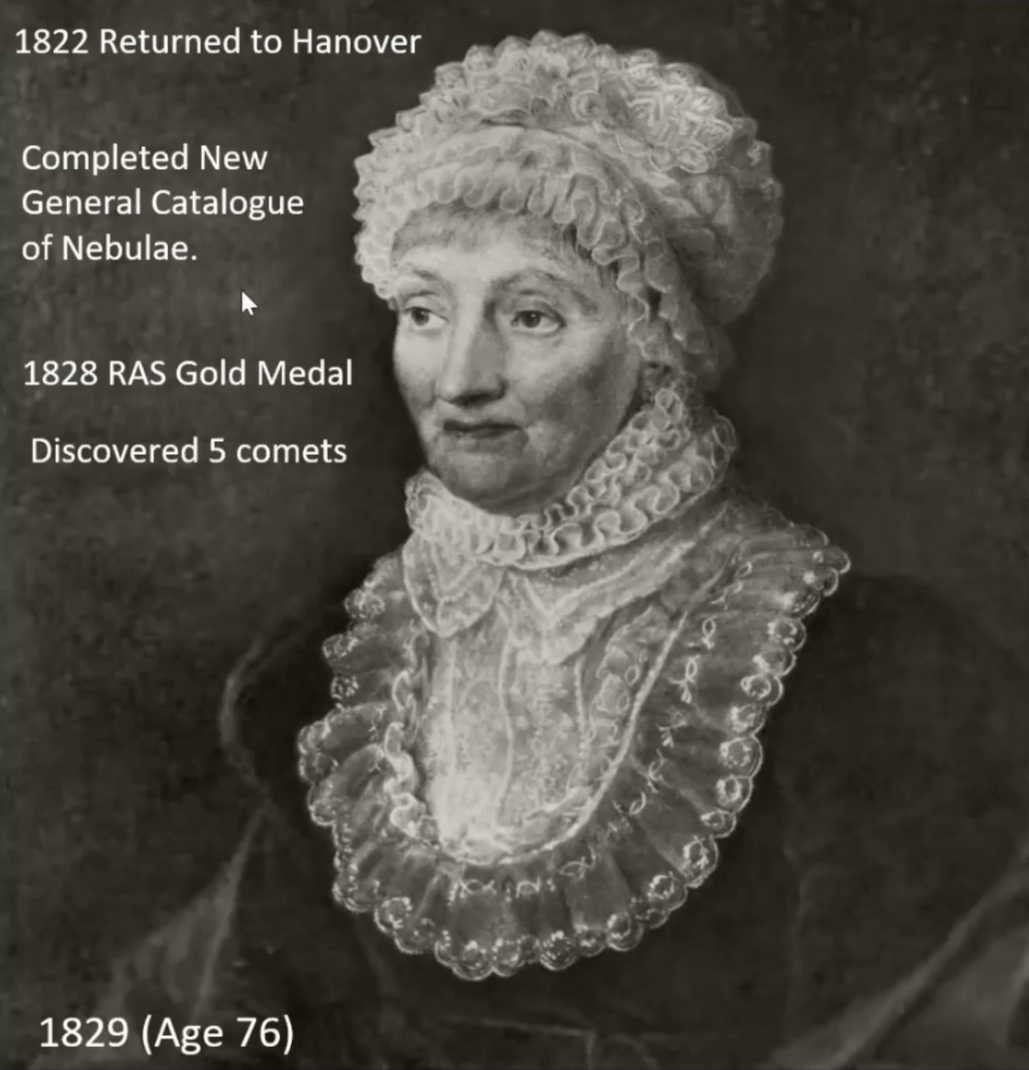A talk presented to the Cirencester Science & Technology Society by Dr Michael McEllin, a member of the Society.
In February 1781 William Herschel was a successful musician on the Bath social scene: he was the director of public concerts, teacher, composer of many musical works and earning a respectable £400 per annum. By the end of March 1781 he was famous all over Europe as the discoverer of a new planet---the first since antiquity, and his telescopes were recognised as the best then available.
In 1782 the Royal Society awarded him the Copley Medal and elected him as a Fellow, while the King appointed him as `Court Astronomer' on a Royal Pension.In the following years that he devoted exclusively to astronomy he continued doing important work until his death in 1822, and perhaps most importantly was the first to pose some of the fundamental questions that have dominated the astronomical research agenda until the present day.
Caroline Herschel was born twelve years after William. Her face had been disfigured by smallpox and her early growth stunted by typhus so she was bluntly told by her mother that she was unlikely to marry and her fate was to stay at home and be the domestic drudge. Unlike her siblings she was even prevented from learning music or needlework: there was to be no escape route.
By the early 1780s she was, however, in Bath with William and singing the solo soprano role in Handel’s Messiah. By 1787 she was receiving her own Royal Pension and being treated with the greatest respect by the Astronomer Royal - the first women ever to hold a UK government appointment. As well as acting as her brother's astronomical assistant she is credited with a number of independent discoveries, including five comets, and recognised with major honours from academic bodies as the World’s first professional female astronomer.
Then there is the “forgotten” Herschel, Alexander, who spent most of his life in Bath as a professional musician. Although he never practiced astronomy, Alexander was a mechanical genius who help Herschel to “engineer” his telescopes. Whenever William required particularly fine or delicate mechanical work he said “Leave it till Alexander comes.”When Bath was “out of season” he would spend his holidays in William’s workshop, where he made lenses, turned brass and devised machines to help with mirror grinding.
How could this happen and why was Bath the one place in England where it could happen?
